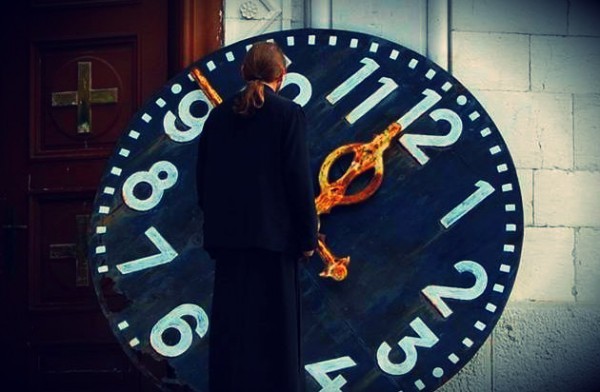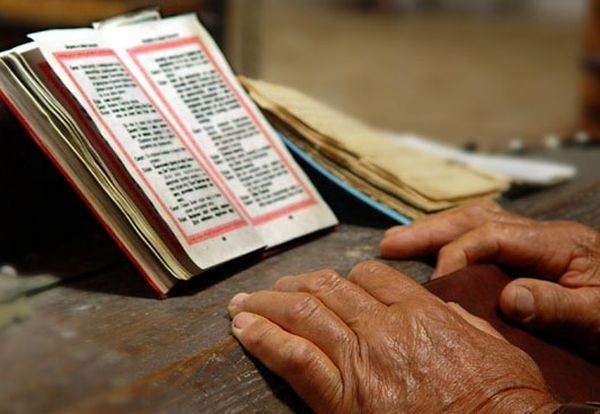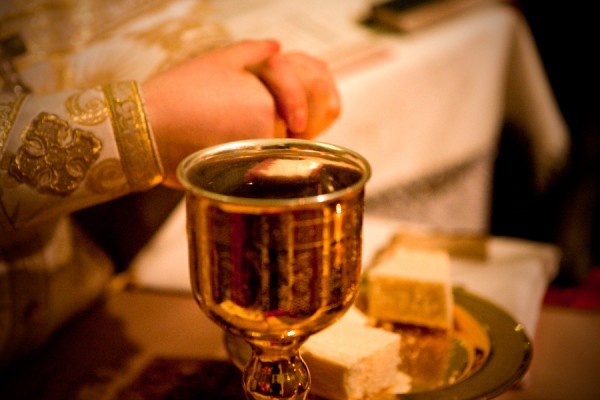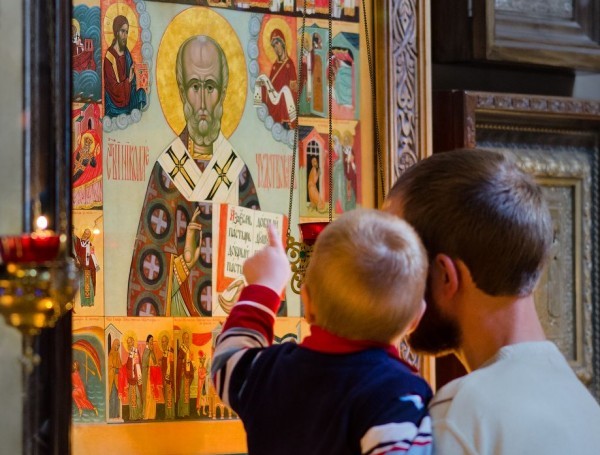Medicine for the routine: attention to people
We must try to throw off the shackles of routine. Of course, this is not easy. You should also try to live the Gospel every day, just as you read about it and heard it throughout the church year—
Not just on religious holidays or fasts, or when we open prayer books to read the morning or evening rules or prepare for communion, but in our daily life, in relationships with family members and colleagues at work, with our neighbors, friends, and maybe even our enemies, with the entire world in which we live.
This is where we show how we are Christians, how much we have learned, and that we are actually ready to be this sort of person.
Unfortunately, often for us, Christianity is a pretty framework for life and a decoration.
People decorate apartments and make repairs, some collect paintings and love music. Religion can be a sort of filler —Orthodoxy, since we live in Russia. Why not go to the temple and take part in the service, maybe even sometimes in the sacrament.
When it comes to daily life, though, and each day of our workdays and relationships — here is where our Christianity really begins.
If we want to achieve something and to grow, an effort is needed in daily life. All that we hear in church, should help us to be Christians in our daily life. This also applies to services and ceremonies, prayers and rules —all should help us to remain faithful to Christ every day, when we are in a situation of choice.
We are always in a situation of choice, as we act by our conscience or overstep ourselves and say: “Everybody does that and I am no worse than everyone else.” You find a lot of excuses not to act like a Christian, but like regular people. Here’s where the greatest responsibility begins.
Learn certain prayers, acquire various experience in the Divine Services — all this is really not that difficult. Given some time, Church Slavonic can be somewhat understood too. Christianity, though, touches on our relationship to people and our loved ones — to those with whom we communicate directly, and not some abstract personalities we hear about on television or read about in newspapers or books.
Confession is dutiful and meaningful
It is necessary to understand what I want to achieve in this life, what is really important to me, and what hinders me from achieving it. Here, of course, it’s not all as easy as it would seem. On the one hand, confession should help us to know ourselves and what we really are. So that we discard everything that is unnecessary and make some steps forward.
On the other hand, in ordinary parish practice, a person who visits the temple once a week or once a month, as his schedule permits, is faced with a lot of problems. He isn’t able to talk with the priest for a long time in order to fully disclose the circumstances of his life, because there simply is not enough time. Under normal circumstances, it is impossible to devote the attention a person requires, when there are one or two hundred people awaiting their turn.
It turns out that confession — an opening of the heart — evolves into a recitation of formalities, seemingly necessary, but which they dilute down. Without receiving proper pastoral guidance, a person may grow cold after a while and step aside.
You need to try to live a meaningful day and find at least a few minutes for thought and analysis of how you lived it — in addition to the rule that a person has (and each is his own). Try to reflect on what I did that was right and wrong and draw conclusions from some situations — meaningfully relate to my life.
Now, people are living such a haggard pace. Ask what happened yesterday and they don’t always remember — and its completely impossible to talk about last week. This perpetual series of events, activities, running about, and commotion is so superimposed on a person that he isn’t even able to appreciate what happened. One becomes like an animal at bay. You need to learn to stop, collect yourself, and analyze …
Perhaps it would be appropriate (this is not suitable for all people, but for the most intellectually developed) to keep a record of your life — to note for yourself private things and then to come back to them when alone to think and to try to find strong and weak points in yourself. Then, come to the priest with it when a service isn’t being conducted to discuss moments of your life, draw lessons from it, and move forward. If you have trusted communication with batyushka — it’s outstanding.
Prayer: a rule or the mystery of communicating with God?
Prayer for us evolves into a process of checking our compliance with the norms that we call prayer. Although, if we take the patristic tradition, ascetic writers said: there is prayer called psalmody, — that is to say — which takes place in the temple. Actually, it is the entire range of daily worship.
There is also prayer that a person does in a monastic cell — and this prayer is not regulated by anyone in anyway. It is your personal prose of prayerful intersession before God — your open heart. What sort of appearance and how you make it is a mystery of man and God in their communication with each other.
Regretfully, what we currently have, sometimes deteriorates into forms that are, in reality, very far from this prayer. Having a conversation on this subject is difficult, because there is a specific experience accumulated over decades, even centuries.
If we take our prayer books, the practice of reading the set of prayers in the morning and evening that we have now, appeared, if I’m not mistaken, in the XIX century. Before that, of course, there were certain rules, but how and in what form simply was not known or known to some small circle of specialists. I, for example, have not run across studies on this topic.
In the end, though, what we now call prayer, transforms into formalism. This can be when they don’t admit a person to Communion, because he did fulfill external duties) as we see it, in the necessary forms or when the forms close off what a man is seeking: to connect with God and unite with the Church. Sometimes, when talking to people, you realize that for many it is an obstacle, because it is impossible to fully carry everything that is offered to Christians today. It is a sad fact of our reality.
We love extremes — either all or nothing. People either read all the canons and hymns as completely as possible, or don’t pray at all, or say “I pray somehow in my own words.” Of course, we need something for orientation.
Without a doubt, prayer should consist of some sort of a prayer rule. It disciplines a person. For example, when he wakes up and tries to prepare himself for the day ahead, turning to God with words of prayer — it is right and necessary. This self-discipline is sure to be a positive influence on a person and people who live in this discipline live correctly.
Another issue is to try to avoid formalism. In addition to the texts that exist in prayer books, one needs to find an opportunity for prayer about that which is essential —about those doubts and unresolved circumstances of situations where we really need Divine Intervention and a sign from God. We must not be afraid to ask God and talk to Him in our own words, too.
Of course, when reading a prayer rule, it is also very important, to understand what you are reading. To understand the meaning of prayers, use your mind and heart. Therefore, the size of the rules can be different for all people —here it is better to consult with your priest in order to find something adequate. Less is better, but make it regular.
Regularity is the most important component of the prayer rule. That is, you chose something for yourself that you can sustain — and sustain it. If you can do more — good, if you can’t — then it be less, but regularly. Unfortunately, “all or nothing”, has sorrowful consequences.
Ideally, Communion should be every Sunday. More precisely, we should take part in communion every time we go to liturgy to pray.
For ordinary people, who are busy with their responsibilities, work, family, children, it’s once a week — why not? If you can come to the temple once a week for Sunday liturgy, then please, let that be your measure. If you go less, once every two weeks, well, okay. Go to the temple as you are able — and orientate on that.
In regards to preparation for Communion, it is possible to communicate with your priest and discuss how wise it would be to read certain prayers, taking into account all the circumstances of your life and employment.
If we take the document, which has already been mentioned, and which was adopted recently — “On the participation of the faithful in the Eucharist” — there is a unalterable section established for prayerful preparation, it is actually the rule for Holy Communion. You need to orientate on it.
It also talks about the canons, but not in such an ultimatum form. It says that they are included in the preparation for prayer, but not the same way. So, if there are no canons — then that’s it — goodbye.
Although some priests are oriented specifically on that. Unfortunately, we have part of the clergy who, it would seem, are looking to prevent a person from participating in communion — and I must say, that they are doing pretty well. They can always find a reason.
Of course, communion only has a beneficial effect if we don’t relate to it as magical. We don’t think that it is some sort of magic pill, which will work by itself. Communion will never have power if a person does not live in a Christian way and work on oneself.
Many believe that there is but one Truth
It is very important that Christians don’t exist in a vacuum, and are in communication with like-minded people, fellow people of the Faith, and with their spiritual father. Then he can express his doubts, and worries and get spiritual, moral support when you remain in the community of the faithful. In fact, this is what the Church intended.
We aren’t saved as recluses living alone; we are saved together in the liturgy. For we are the liturgy —a joint activity — completed throughout the course of our life, knowing the needs and problems of others, and trying to somehow resolve them.
When there is a place where you can come, and you know that joy awaits you and they will always help and advise you with help from God that is given through other people, the experience is much easier. When you are closed-off by yourself and try to think out something and to understand your own way, you will certainly get lost, and do something wrong and get sidetracked.
Therefore it is important to find a place where there will be people who will understand you, pray with you, and support you. This is our Church — conceived by God — as a community of believers. The word “church” — Ecclesia — does not refer to the building of bricks and wood, it is a collection of people who are enlivened by the Holy Spirit to live together.
You can, of course, read a lot of interesting things in books, but a person needs constant support, just like its important for a child to have constant communication with parents. Not occasionally, like I saw a mom or dad once a year: “How are you?” – “Okay.” – “Well, okay. Do your homework and don’t fiddle around.”
Regular communication with relatives in the family are needed. All this together completes a person and puts him in a special state. There is a thirst for life and a desire to do something — to achieve something. It must be the same in the Church.
Of course, people in the community must trust each other. If there isn’t this state of trust, then attempts begin to be made to get into to change something with someone else’s hands, to personify other people through their views. How can this trust be made? I don’t know. If people knew, they probably would have already done so.
Trust in this case is a very broad concept. We have people who suffer from various hang-ups and they are afraid, for example, when they see a new person. We have suspicion, mistrust, rejection, and anxiety. How can we escape all this? It is probably impossible all at once.
Still other realities of our church life is when we shift responsibility to God, to the saints, to the priests, and to loved ones. How does one learn to take that responsibility on himself? It also isn’t easy.
Why do we have so much disorder like this? Because the whole dispensation system of church life that the Church’s Tradition preserves to this day was broken at some point. It is difficult to understand specifically, but it happened —
because of the understanding that there is a God, and that means something to me personally and somehow affects my life, as happens to every believer. After a person comes to this understanding, though, He must go through a period of learning, which the Church called and calls catechesis, or instruction. At some point, this harmonious chain discovered by a person of faith, then his learning, and later a meaningful life in the Church, turned out to be broken. Today, we are trying to revive some of its specific forms, but it is difficult .
In our present life, it is not in one person’s power to return and actualize all that is contained in our Tradition all at once in its entirety. It is an effort by all and a recognition of the importance of returning that Tradition to our lives.
Every Local Church experiences its epochs in its own specific contexts. To simply make it out of them, saying, “everything will be okay for us now” is impossible. We live with a specific burden and legacy — good and bad.
Of course, one needs to live in the epoch in which he landed and responsibly accept what it is, according to the the situation. If they give a person one book, “Russia before the Second Coming,” and he doesn’t want to know anything else and is closed off in this sort of narrow view on spiritual life — there is nothing you can do. If a person, though, sincerely wants to achieve something, searches and tries to understand, then he will certainly find the correct path. It is always a fight with temptation, though.
Once I wrote a reflection on how to be an Orthodox Christian. If one priest says one thing, another says something else, and a third still something else; then how do you make sense of all these diverse opinions? How do you make it through this situation? Then I expressed this thought: you need to try to understand how it should really be. Take steps yourself to resolve where there really is truth, because two truths do not exist on the fundamental issues which the salvation of our souls rests upon.
Somewhere there may be a variation of opinion and diversity —and somewhere — only one possible way, according to the Gospel: “Yes — yes. No — no.” Such is life in the Church. It is very difficult, but beneficial and possible.
***
Today, in the XXI century, it is possible to live by the Gospel, to live by the commandments, and to live as the apostles, Christians of all times, and the saints lived. This is possible today, but it is always a lot of work. This work doesn’t only reside in that we observe rules, keep fasts, and wear certain clothes, but is also in our relationship with the world, with people, with God, and with each other. It’s the complete package of absolutely everything that happens in our lives.
Prepared by Darya Mendeleev
Translated from the Russian.






















